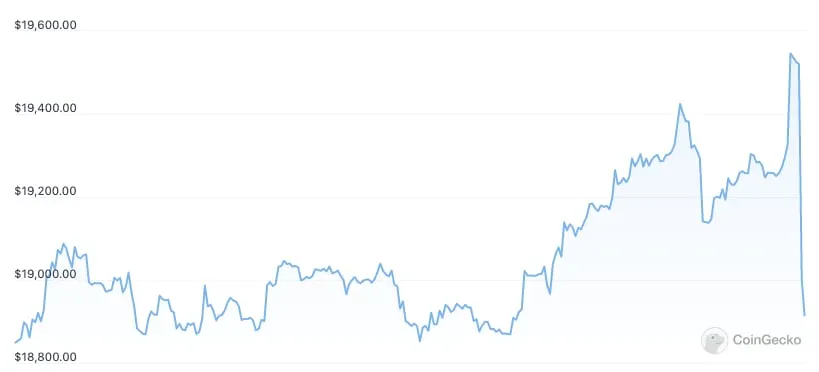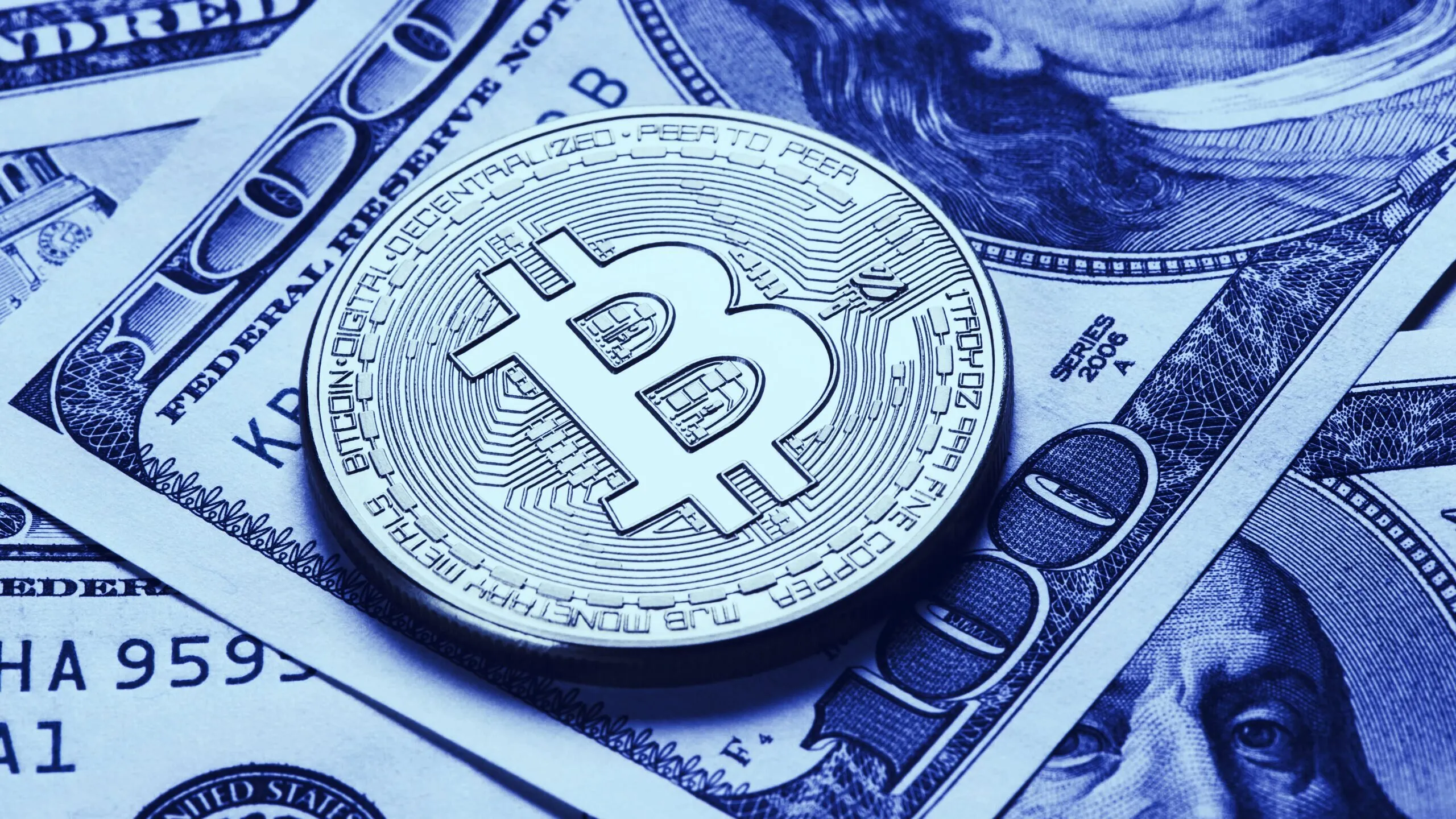The price of Bitcoin dropped sharply following the Federal Reserve’s announcement that it would hike interest rates by 75 basis points to combat sky-high inflation.
The biggest cryptocurrency by market cap dropped below $19,000 following the announcement before rebounding amid widespread market volatility. It’s now trading at roughly $19,039, down around 1% over the last hour. Bitcoin is also down approximately 5.7% in the past seven days.
Market analysts had expected the Fed to raise interest rates yet again today, this time by between 75 and 100 basis points. Bitcoin, other cryptocurrencies, and stocks appear to have mostly priced-in these expectations this week, though that didn't stop skittish traders from selling lower today. Stocks likewise dipped following the news, with the Dow Jones and the S&P 500 both dropping by roughly 0.70% at time of writing.

Central banks—not just the Federal Reserve—have been raising interest rates to control soaring prices. The Fed has been particularly aggressive in its approach because inflation in the U.S. is at a four-decade high, leading investors to look to safe havens like the U.S. dollar and avoid “risky” assets like equities and crypto.
In fact, Bitcoin has this year been trading most like a tech stock, according to Arcane Research data. It has taken a beating, too: it’s currently down 70% lower than its November 2021 all-time high of $69,044.
While the dollar has been climbing steadily—and today was no exception: before Fed chair Jerome Powell spoke, it had already touched a new two-decade high, in part driven by Russian President Vladmir Putin’s decision to up the ante in Ukraine.
Edward Moya, OANDA senior market analyst for the Americas, told Decrypt that it was a “troubling market environment” but there was light at the end of the tunnel. “I think for the most part much of Wall Street is expecting the Fed to remain committed to fight inflation which is difficult for risky assets—like crypto,” he said.
“It’s a wait and see approach: long-term investors are still committed to crypto and they will be unfazed by today’s decision; they are anticipating that crypto will trade on its own fundamentals, eventually—not like tech stocks,” he added.
Darius Sit of Singapore-based crypto investment firm QCP Capital told Decrypt that although Bitcoin has been trading like “macro risk asset,” it could “break that correlation” in the future.
Ethereum, the second largest digital asset, didn’t do much better after the Fed’s policy decision. The asset is down 1% in the past 24 hours, trading for $1,328.
The asset, which despite completing a long-awaited and much-publicized transition to a proof-of-stake blockchain last week, has struggled to gain momentum: in the past seven days, its price is down 15%.

